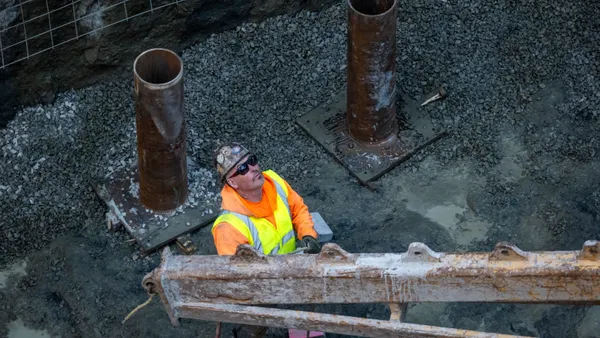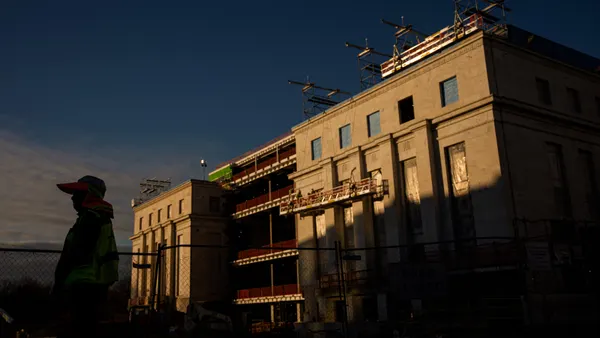Dive Brief:
- Seattle is still experiencing a building boom, but the city's construction workers are wondering how long it will last, how a new head tax will affect the pace of construction activity and how far they will have to live from the city's core in order to escape skyrocketing housing prices, according to Crosscut.
- Seattle leads the crane count for major U.S. metros, with construction creating more jobs than there are people to fill them. Ironically, many of the more than 100,000 people driving the boom can't afford to live in the city and must commute from as many as two hours away. Cognizant of the ups and downs inherent in the construction business, workers told Crosscut they're always "mentally prepared" for a downturn to begin.
- One of the factors workers fear will create a slowdown in the city's construction industry is the new head tax passed by the Seattle City Council on Monday, May 14. The tax will cost companies with annual revenues of $20 million about $275 per full-time employee every year. The goal is to use the extra revenue to help alleviate the homeless problem in Seattle, but construction workers worry that companies will choose to relocate instead, resulting in the city's biggest businesses reducing their current construction programs.
Dive Insight:
The new tax takes effect in January 2019 and is expected to raise almost $45 million a year during its five-year lifespan. About 60% will help fund new affordable housing, and 40% will go toward emergency services for the homeless.
Also called "the Amazon tax" after the most high-profile company headquartered in the city, the new head tax rate is almost half of the $540 per-employee tax council members originally proposed. That could have been a result of Amazon's dramatic decision to stop construction on a new downtown tower as a protest in the run-up to the vote. After the council passed the new measure, Amazon said it would resume construction on the tower but might reconsider its long-term growth plans in Seattle, according to Fast Company.
The city has been struggling with a growing homeless population, and many in favor of the head tax argue that it’s the growth of tech companies like Amazon that have contributed to the problem. High-paid workers are snapping up homes, driving prices higher and putting them out of reach of the working class. In fact, Seattle activists have issued a caution to those cities that hope to be Amazon's choice for its new $5 billion North American headquarters. They said that along with a surge in housing prices, resulting in another possible homelessness problem, the winner will also have to contend with traffic congestion and additional stress on area transit systems.












